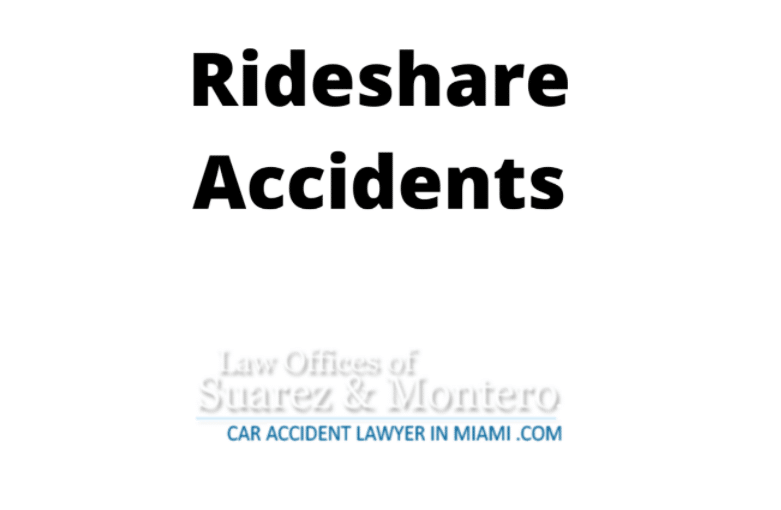
Navigating Car Accidents in Florida with International Defendants: Your Legal Options and Strategies
Car accidents are distressing events, but when the other party resides outside the country, navigating the legal process can become even more complex. In Florida, where international travel and residency are common, understanding your options and strategies for dealing with an out-of-country defendant is crucial. From service of process to legal recourse, let’s delve into the considerations and steps you need to take if you find yourself in this situation.
Understanding Jurisdiction and Service of Process
One of the first challenges in a car accident case involving an international defendant is establishing jurisdiction and effecting service of process. Jurisdiction refers to the court’s authority to hear and decide a case, while service of process involves formally notifying the defendant of the legal proceedings against them.
In Florida, jurisdiction may be established if the accident occurred within the state’s boundaries or if the defendant has sufficient minimum contacts with the state. However, when the defendant resides outside the country, serving them with legal documents becomes more intricate due to international laws and treaties.
Options for Service of Process: When dealing with an out-of-country defendant, it’s essential to explore various methods of service of process. These may include:
- International Service of Process: This involves following the procedures outlined in international treaties or agreements, such as the Hague Service Convention. Under this convention, participating countries agree to serve legal documents on each other’s behalf through designated central authorities.
- Service by Mail: Some countries allow service of process by international mail, while others may require additional steps or refuse service by this method altogether. It’s crucial to research the specific requirements of the defendant’s country of residence.
- Service through Agent or Representative: If the defendant has a legal representative or agent in the United States, serving them may be an option. This approach can expedite the process and ensure compliance with local laws.
- Publication Service: In cases where traditional methods of service are unsuccessful or impractical, courts may authorize service by publication in a newspaper or other public outlet. However, this method is typically considered a last resort and may require court approval.
Considerations for Service of Process
When determining the most appropriate method of service of process, several factors should be taken into account:
- Legal Requirements: Different countries have varying rules and procedures for serving legal documents. It’s crucial to research and comply with the specific requirements of the defendant’s country of residence.
- Time Constraints: Legal proceedings have deadlines, and delays in serving the defendant could affect your case. It’s essential to act promptly and efficiently to avoid any potential issues.
- Costs and Expenses: International service of process can incur additional costs, such as translation fees, courier charges, and administrative expenses. Budgeting for these costs is essential to prevent any financial surprises later on.
- Language and Cultural Barriers: Communication barriers may arise when dealing with an international defendant, particularly if they are not fluent in English or unfamiliar with the U.S. legal system. Employing translators or legal professionals with expertise in international law can help overcome these obstacles.

Strategies and Tips for Dealing with International Defendants
Navigating a car accident case involving an out-of-country defendant requires careful planning and strategic execution. Here are some tips to help you effectively handle the situation:
- Consult with an Attorney: Seeking guidance from an experienced attorney who specializes in international law or personal injury cases can provide invaluable assistance. They can assess your case, advise you on the best course of action, and navigate the complexities of international legal procedures on your behalf.
- Gather Evidence: Collecting evidence from the accident scene, such as photographs, witness statements, and police reports, is crucial for building a strong case. This evidence can help establish liability and support your claims in court, regardless of the defendant’s location.
- Document Communication: Keep records of all communication with the defendant, their legal representatives, and any relevant authorities. This includes emails, letters, phone calls, and other forms of correspondence. These records can serve as evidence and help track the progress of your case.
- Be Patient and Persistent: Dealing with international legal matters can be time-consuming and challenging. It’s essential to remain patient and persistent throughout the process, following up on any outstanding issues and staying informed about the status of your case.
- Explore Settlement Options: In some cases, reaching a settlement with the defendant may be a preferable alternative to prolonged litigation. Negotiating a fair settlement can save time, money, and emotional stress for all parties involved.
Conclusion
Being involved in a car accident with an out-of-country defendant in Florida presents unique challenges, particularly regarding jurisdiction and service of process. By understanding your legal options, considering the various methods of service, and implementing effective strategies, you can navigate this complex situation with confidence. Remember to seek professional legal guidance, gather sufficient evidence, and remain persistent in pursuing a favorable outcome for your case. With diligence and perseverance, you can assert your rights and seek the compensation you deserve.
If you are injured in an accident, call Jaime “Mr. 786Abogado” Suarez today to Get You Paid!





